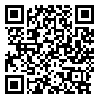Mon, Dec 15, 2025
[Archive]
Volume 7, Issue 4 (12-2017)
J Adv Biomed Sci. 2017, 7(4): 549-556 |
Back to browse issues page
Download citation:
BibTeX | RIS | EndNote | Medlars | ProCite | Reference Manager | RefWorks
Send citation to:



BibTeX | RIS | EndNote | Medlars | ProCite | Reference Manager | RefWorks
Send citation to:
Zanjani M, Yazdi-Ravandi S, Shahmohammadi S. Clinical application of Bender–Gestalt in screening of brain lesions in patients with Stroke and Multiple Sclerosis. J Adv Biomed Sci. 2017; 7 (4) :549-556
URL: http://jabs.fums.ac.ir/article-1-1362-en.html
URL: http://jabs.fums.ac.ir/article-1-1362-en.html
1- Hamadan University Of Medical Sciences, Hamadan, Iran , Maryam.zanjani28@gmail.
2- Behavioral Disorders and Substance Abuse Research Center, Hamadan University of Medical Sciences, Hamadan, Iran.Young Researchers and Elite Club, Islamic Azad University, Roudehen, Iran
3- Hamadan University Of Medical Sciences, Hamadan, Iran
2- Behavioral Disorders and Substance Abuse Research Center, Hamadan University of Medical Sciences, Hamadan, Iran.Young Researchers and Elite Club, Islamic Azad University, Roudehen, Iran
3- Hamadan University Of Medical Sciences, Hamadan, Iran
Abstract: (8662 Views)
Background & Objective: Bender-gestalt test is often discussed as a screening method in different brain damages including organic brain syndrome, schizophrenia and neuropsychological functions. The purpose of this study is to investigate clinical application of Bender–Gestalt in screening of brain lesions in patients with Stroke and Multiple Sclerosis.
Material & Methods: In this descriptive–analytic research, 21 patients with multiple sclerosis and 19 stroke patients and 30 healthy people were studied through convenience method. Data were collected using Bender-gestalt test and demographic questionnaire checklist including age, gender and the number of years of disease. Collected data were analyzed through SPSS-16 software.
Results: 23.8% patients with multiple sclerosis, 36.8% patients with stroke and 43.3% control group people were men. Three basic indices: hand tremors (89.5), pencil pressure (73.7) and bold lines and redrawing in stroke patients and two basic indices: pencil pressure (47.6) and hand tremors (42.9) had the most frequency in patients with multiple sclerosis. Stroke patients had the most accurate (26.3) drawings in card number 1 while patients with multiple sclerosis in card numbers 1–2 and 5 had above 50% accurate drawings.
Conclusion: Patients with Multiple sclerosis had better performance on running Bender test in comparison with stroke patients. Hand tremors and pencil pressure indices are most important ones which can be used in the identification of patients with multiple sclerosis and stroke patients.
Material & Methods: In this descriptive–analytic research, 21 patients with multiple sclerosis and 19 stroke patients and 30 healthy people were studied through convenience method. Data were collected using Bender-gestalt test and demographic questionnaire checklist including age, gender and the number of years of disease. Collected data were analyzed through SPSS-16 software.
Results: 23.8% patients with multiple sclerosis, 36.8% patients with stroke and 43.3% control group people were men. Three basic indices: hand tremors (89.5), pencil pressure (73.7) and bold lines and redrawing in stroke patients and two basic indices: pencil pressure (47.6) and hand tremors (42.9) had the most frequency in patients with multiple sclerosis. Stroke patients had the most accurate (26.3) drawings in card number 1 while patients with multiple sclerosis in card numbers 1–2 and 5 had above 50% accurate drawings.
Conclusion: Patients with Multiple sclerosis had better performance on running Bender test in comparison with stroke patients. Hand tremors and pencil pressure indices are most important ones which can be used in the identification of patients with multiple sclerosis and stroke patients.
Type of Study: Research |
Subject:
Clinical Psychology
Received: 2017/02/15 | Revised: 2019/05/8 | Accepted: 2017/11/1 | Published: 2018/01/9
Received: 2017/02/15 | Revised: 2019/05/8 | Accepted: 2017/11/1 | Published: 2018/01/9
Send email to the article author
| Rights and permissions | |
 |
This work is licensed under a Creative Commons Attribution-NonCommercial 4.0 International License. |

This work is licensed under a Creative Commons — Attribution-NonCommercial 4.0 International (CC BY-NC 4.0)



